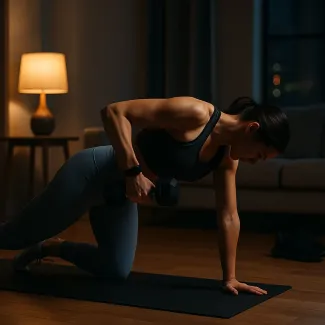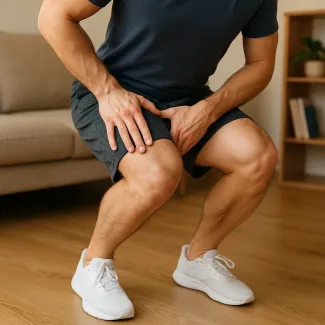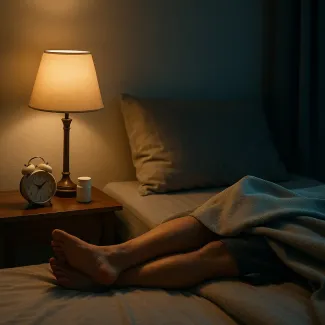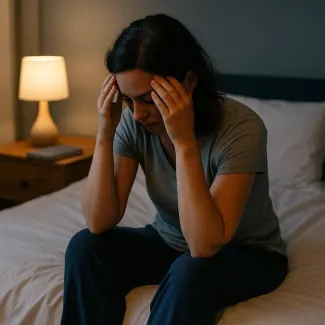
How Evening Exercise Impacts Your Body and Nightly Recovery
Exploring the balance between late workouts and quality sleep
Modern lifestyles often push people to exercise late in the day. Whether due to work schedules, family obligations, or personal preference, evening workouts have become increasingly popular. Yet, many wonder how this choice affects sleep quality, hormonal balance, and overall health. This comprehensive guide examines the scientific and practical sides of late-day exercise.
Is evening the right time to exercise?
Understanding your circadian rhythm
The human body is governed by an internal clock called the circadian rhythm, which regulates energy levels, hormone secretion, and alertness throughout the day. Evening workouts can influence this rhythm, especially if performed close to bedtime. While some individuals feel energized and focused after training at night, others may struggle to fall asleep.
Key benefits of evening exercise
For many, working out in the evening provides several advantages:
- Higher strength and endurance: Core body temperature is naturally higher in the evening, which can boost performance.
- Better stress relief: After a long day, exercise can serve as a powerful stress reliever.
- Improved consistency: People who struggle to wake up early may find it easier to stay consistent with nighttime workouts.
Potential downsides of training late
However, there are considerations to keep in mind:
- Sleep disruption: High-intensity activity within an hour of sleep may delay sleep onset.
- Elevated cortisol levels: Exercise increases cortisol, a stress hormone that can interfere with melatonin production.
- Late eating habits: Evening exercise often leads to late meals, which can disrupt digestion and sleep.
How does evening training affect your sleep?
Hormones involved in sleep regulation
Melatonin and cortisol are two hormones highly influenced by exercise timing. While morning workouts generally promote an early rise in cortisol and a natural evening drop, nighttime exercise may keep cortisol levels elevated, delaying melatonin release.
Body temperature and sleep latency
An increase in body temperature from exercise can delay the ability to fall asleep. The body naturally cools before sleep, and workouts raise the internal temperature temporarily. However, this effect diminishes within 60 to 90 minutes post-exercise, so planning accordingly can mitigate negative impact.
Heart rate and nervous system activity
Exercise activates the sympathetic nervous system, which increases heart rate and alertness. For restful sleep, the body must transition to parasympathetic dominance. Low- to moderate-intensity activities (like yoga or stretching) in the evening are less likely to impair this process.
Benefits of evening workouts for physical and mental health
Supporting muscle growth and strength
Training in the evening may be optimal for muscle hypertrophy. Research shows testosterone levels are stable throughout the day, while cortisol is lower at night. This hormonal profile may support muscle repair and growth.
Enhancing mood and reducing stress
Endorphin release from evening exercise can help combat anxiety, depression, and daily fatigue. For individuals with stressful jobs, an evening workout can significantly improve mental clarity and emotional regulation.
Better workout performance
Athletes often record better performance metrics (like reaction time, grip strength, and VO2 max) in the late afternoon or evening. This aligns with natural body rhythms, making evening an effective training window for those focused on endurance or power.
Tips for balancing evening workouts with healthy sleep
Time your session wisely
Aim to finish intense workouts at least 90 minutes before bedtime. This allows your body temperature and heart rate to stabilize.
Choose the right intensity
If training later than 8 p.m., consider lower-intensity options such as pilates, walking, or mobility work. These promote relaxation rather than stimulation.
Incorporate post-exercise recovery
- Use cool-down techniques like gentle stretching and foam rolling.
- Try a warm shower or bath to accelerate the post-exercise cooling process.
- Practice deep breathing or light meditation to calm the nervous system.
Mind your nutrition
Avoid large, heavy meals after evening workouts. Instead, opt for light protein-rich snacks that aid recovery without burdening digestion. Examples:
- Greek yogurt with berries
- Cottage cheese with banana
- A protein smoothie with almond milk
Common concerns and misconceptions about late training
"Will I gain weight if I exercise at night?"
Exercise timing alone doesn’t cause weight gain. However, late-night snacking due to post-workout hunger can lead to increased calorie intake. Focusing on balanced meals and hydration helps prevent this.
"Is it bad for the heart to train late?"
For most healthy individuals, evening exercise is not harmful to cardiovascular function. In fact, it can lower resting heart rate, improve circulation, and aid in blood sugar regulation—provided sleep isn’t compromised.
"Will I have insomnia if I train in the evening?"
Not necessarily. The type, intensity, and timing of the workout matter. Gentle evening workouts can actually improve sleep quality, while vigorous late-night training might interfere with it.
Best types of workouts to do in the evening
Strength training
Weightlifting or resistance band work is ideal in the evening when muscle performance peaks.
Low-impact cardio
Walking, elliptical training, or cycling at a moderate pace supports cardiovascular health without overstimulation.
Yoga and stretching
Perfect for relaxation, these exercises help lower cortisol, enhance flexibility, and transition the body toward sleep.
Mobility and functional training
Foam rolling, core activation, and mobility drills improve joint health and reduce muscle tightness accumulated during the day.
Who benefits most from evening exercise?
Busy professionals
Evening exercise is ideal for those with tight mornings. It helps decompress after a stressful day and maintain a regular fitness routine.
Night owls
People with a natural tendency to stay up late often feel more energized at night and can handle high-performance workouts later in the day.
Those seeking stress relief
Evening workouts support emotional balance, especially for individuals dealing with chronic stress, anxiety, or fatigue.
Evening exercise and hormonal health
Cortisol and melatonin interaction
Understanding how cortisol spikes from exercise affect melatonin production can help optimize training schedules for hormonal balance.
Testosterone and muscle recovery
Evening strength workouts align with anabolic hormonal windows, especially when supported by good sleep and protein intake.
Insulin sensitivity and glucose regulation
Evening workouts can improve blood sugar control and insulin sensitivity, particularly beneficial for people with metabolic challenges or prediabetes.
Practical strategies for evening workout success
Plan your day in reverse
Ensure your schedule allows time for a workout, cool-down, a light meal, and wind-down time before bed.
Track your sleep
Use a sleep tracker or journal to monitor how your body responds to different training times.
Stay consistent
As with all routines, consistency matters more than perfection. If evening workouts suit your lifestyle, stick with them and adjust variables as needed.
Listen to your body
Some days, your body might crave rest over a workout. Respect your energy levels and allow flexibility in your schedule.
Tools to enhance recovery after evening workouts
Blue light blocking glasses
Wearing these in the hour after training can encourage melatonin production and prepare the brain for rest.
Magnesium supplementation
Supports muscle relaxation and sleep onset, especially helpful if post-workout energy remains elevated.
Sleep-enhancing teas
Chamomile, valerian root, and lavender teas provide gentle sedative effects and aid sleep quality.
Breathing and mindfulness apps
Guided relaxation sessions reduce sympathetic overactivity and ease the transition to parasympathetic dominance.
Final notes on syncing evening workouts with healthy sleep
Build a bedtime routine
A structured wind-down routine that follows evening workouts helps cue the body for rest. Examples:
- Dimming lights
- Avoiding screens
- Gentle stretching
- Reading or journaling
Create a sleep-friendly environment
Keep your room cool, dark, and quiet. A sleep-conducive environment amplifies the benefits of evening exercise by improving sleep depth and duration.
Hydrate wisely
Drink water during and after workouts, but limit fluids close to bedtime to avoid nighttime awakenings.
Reflect and adjust
Your personal chronotype, fitness goals, and sleep needs should guide your training decisions. What works best for one person might not be optimal for another.
Evening workouts are not only possible—they can be highly effective when timed strategically and combined with restorative habits. Whether you’re a working professional, a night owl, or someone seeking better recovery, tailoring your training to your lifestyle can enhance both fitness and sleep quality.





